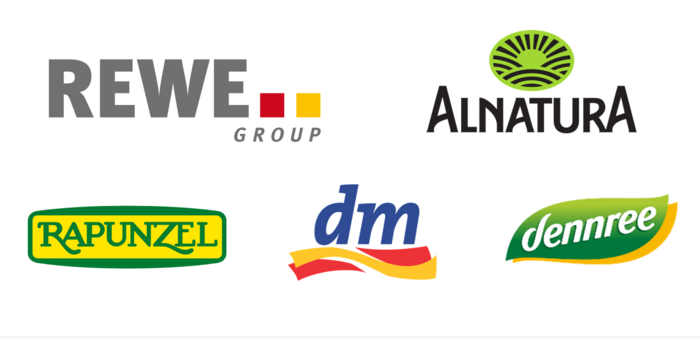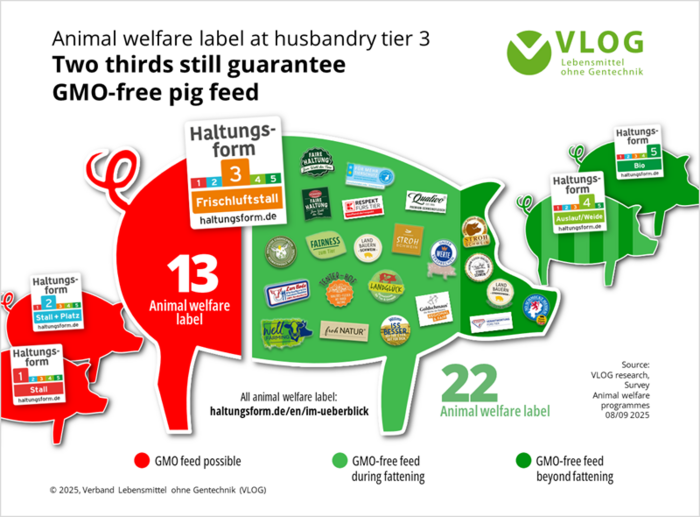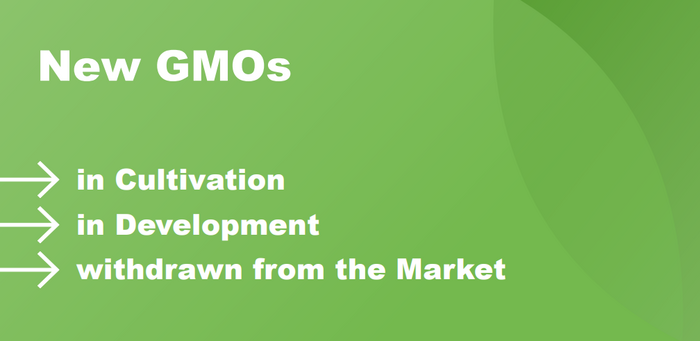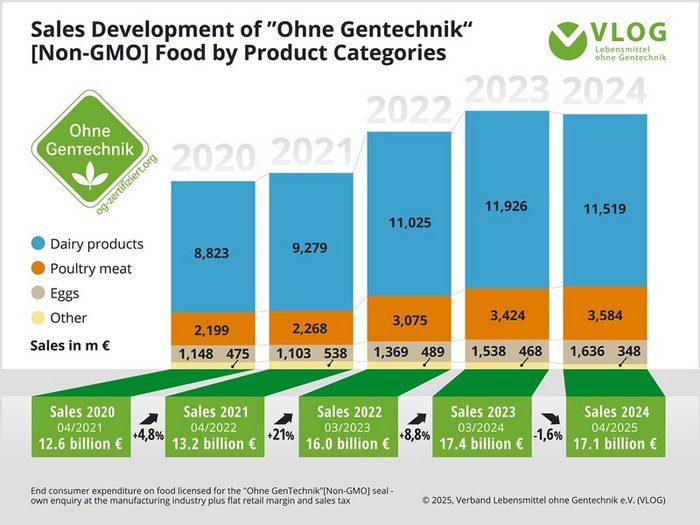Press
All press releases and press statements
If you would like to receive our press releases by e-mail, we will be happy to add you to our press mailing list.
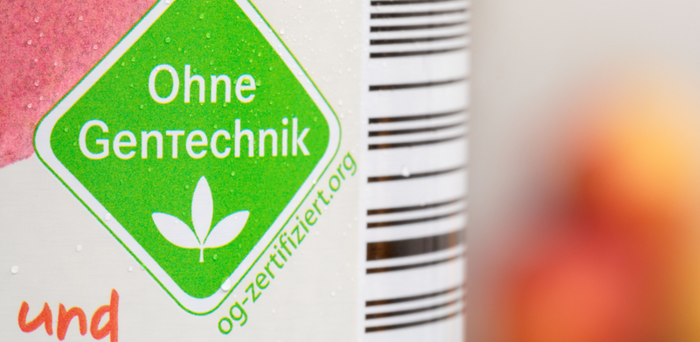
Possible new EU regulations: Will GMO-free products soon be recognisable only by a seal?
If the agreement reached today in Brussels on new genetic engineering (NGT) were actually implemented, GMO-free foods would in the future only be reliably recognisable by an "Ohne GenTechnik" (Non-GMO) or organic seal. However, the European Parliament and Member States can still prevent this.

Appeal to the Minister of Agriculture: The industry needs strong GMO regulations!
The food industry continues to need strong, reliable regulations for labelling and coexistence for new genetic engineering (NGT). The industry addressed this message directly to the German Minister of Agriculture, Alois Rainer (CSU), at the Anuga food fair in Cologne.
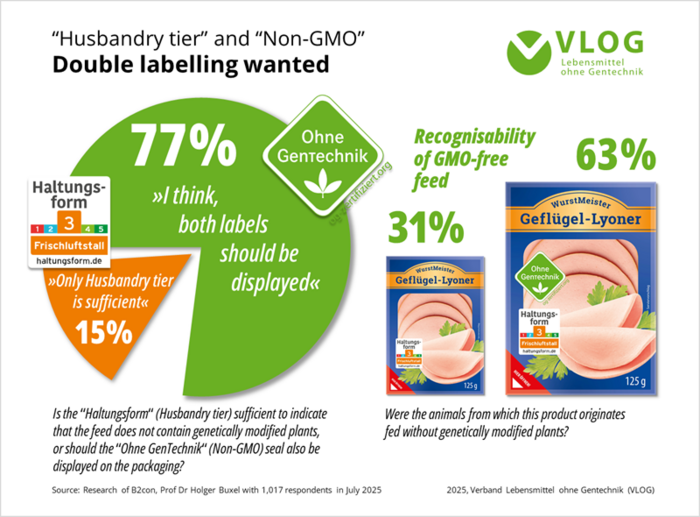
Husbandry tier and "Ohne Gentechnik": Please show both labels!
The animal husbandry tier includes also criteria for GMO-free animal feed. However, most consumers are unaware of this and would like to see an additional "Ohne Gentechnik" (Non-GMO) label. This is shown by a research conducted in the run-up to the Anuga 2025 food fair.
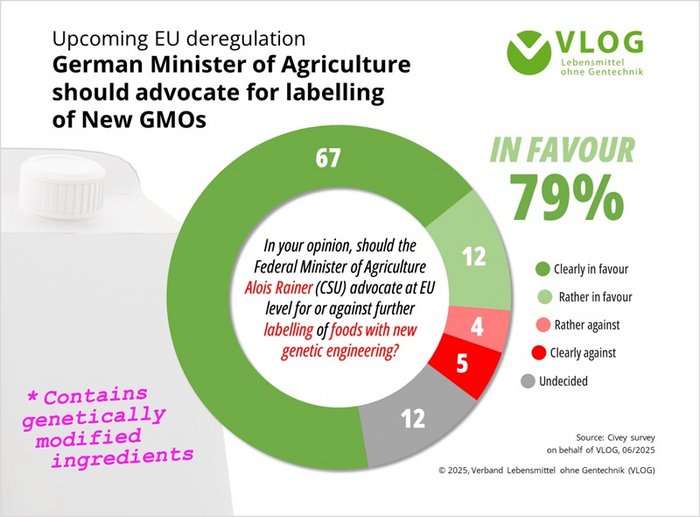
Survey: German Agriculture Minister Rainer should advocate for GMO labelling
Negotiations for new genetic engineering regulations are underway at the EU. According to a recent survey, nearly 80 percent want German Agriculture Minister Alois Rainer (CSU) to advocate for maintaining mandatory labelling for food produced using new genetic engineering.

Sales of "Ohne Gentechnik" eggs doubled in past 5 years
In 2024, eggs with the "Ohne GenTechnik" (Non-GMO) seal were sold for over 1.6 billion euros, which is 6.4 percent more than in the previous year. Over the last five years, sales of labelled eggs have almost doubled, from around 0.8 billion euros in 2019.

Coalition Agreement: Positive signals for "Ohne Gentechnik" and consumers
The coalition agreement presented by the German parties CDU, CSU and SPD on 9 April 2025 contains positive signals for the GMO-free food industry. According to media reports, Michaela Kaniber (CSU) could become Minister of Agriculture in the upcoming German government.

Mandate for new government coalition: 94 percent want labelling of new genetic engineering
According to a study by the German government, 94 percent of adults in Germany want mandatory labelling for new genetic engineering (NGT) in food. The future German government must take this seriously and enforce it in Brussels.

Majority position of EU Member States: Major need for improvement in NGT deregulation
After more than a year and a half, the EU Member States have agreed on a common position on the deregulation of new genetic engineering (NGT). This is unlikely to be the hoped-for breakthrough, as there are still no regulations on labelling requirements and coexistence. The food industry and consumers will not accept this.


